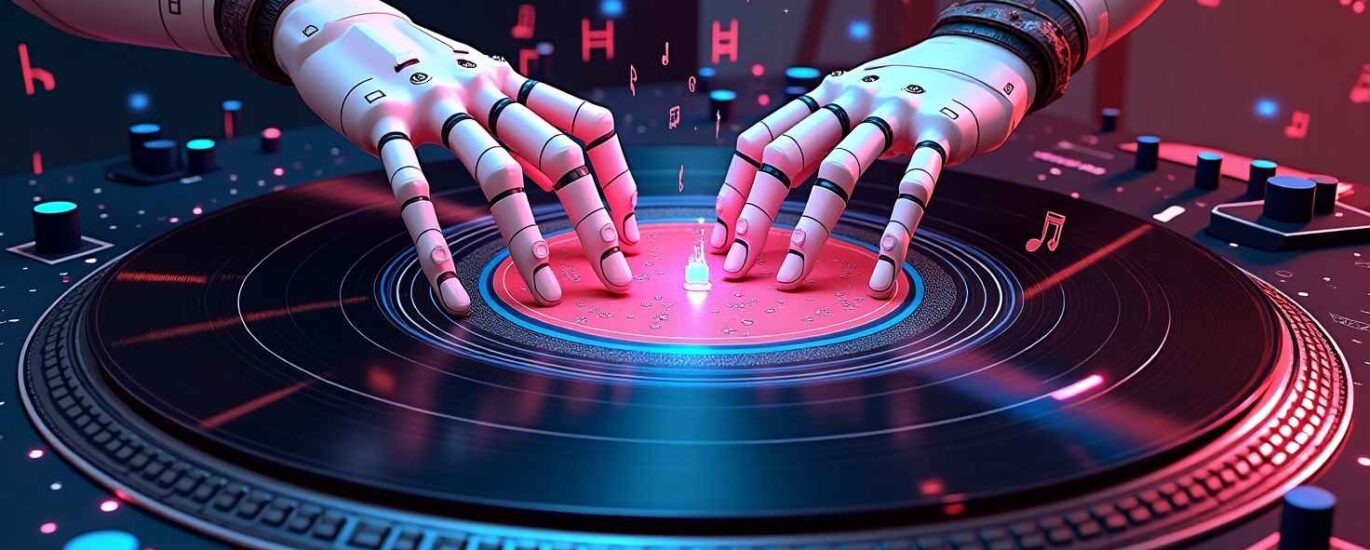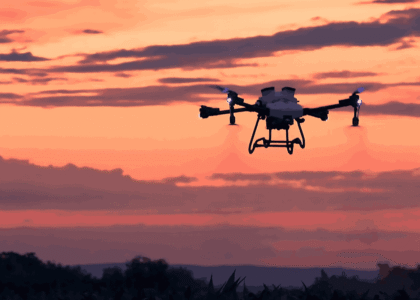The music industry is no stranger to transformation. From vinyl to streaming, every shift has rewritten the rules of the game. But today’s biggest shake-up isn’t a new format or platform—it’s artificial intelligence (AI). AI is changing how music is created, distributed, monetized, and even consumed. And if you’re in the music business, you’re either adapting—or falling behind.
Whether it’s AI-powered playlists or tools that compose original scores in seconds, the traditional music model is facing an unprecedented wave of disruption. Take, for instance, the rise of the AI music generator—a tool that’s not just aiding musicians but, in some cases, replacing them altogether.
So, how is AI reshaping the landscape of music as we know it? Let’s dive in.
From Inspiration to Creation: AI in the Studio
Traditionally, making music required inspiration, instruments, and sometimes a pricey studio. AI has flipped that equation. Now, anyone with a computer can create studio-quality tracks using tools like Amper Music, AIVA, and Soundraw. These platforms analyze massive data sets of music to generate original compositions in a fraction of the time it would take a human.
Empowering or Replacing Artists?
While some fear AI might “replace” musicians, many artists are embracing it as a co-creator. Think of it as a digital collaborator—AI can suggest chord progressions, generate drum loops, and even mimic the style of famous artists.
Take Grammy-winning artist Taryn Southern, who used AI to compose an entire album. She didn’t abandon creativity—she enhanced it. The AI handled the groundwork, freeing her to focus on lyrics and performance.
Actionable Insight: Musicians can experiment with AI tools to streamline their creative process. Try integrating AI into your workflow to brainstorm melodies or structure arrangements faster.
Disrupting the Economics of Music Production
Creating a hit song used to cost thousands of dollars in production fees, studio rentals, and professional engineers. AI is democratizing that process by making high-quality music production accessible to independent artists on tight budgets.
Lower Costs, Higher Competition
This accessibility, however, comes with a downside: market saturation. With AI lowering the barrier to entry, platforms like Spotify are flooded with content. In fact, Spotify adds over 100,000 new tracks per day, according to 2023 reports.
This explosion of content makes it harder for artists to stand out, intensifying the need for smart marketing and branding strategies.
Actionable Insight: Use AI not only for music production but also for audience analysis. Platforms like Chartmetric or Soundcharts use AI to track listener data and help you optimize your release strategy.
AI and the Reinvention of Music Distribution
Music distribution used to be tightly controlled by labels and radio stations. Not anymore. AI algorithms on platforms like YouTube, Spotify, and TikTok now decide what gets heard and what doesn’t.
Algorithmic Gatekeepers
Ever wondered why certain songs seem to blow up overnight? Thank AI. Recommendation engines analyze user behavior, engagement rates, and listening habits to push content to the right audience. In 2024, Spotify revealed that over 60% of user listening is driven by algorithmic playlists like Discover Weekly and Release Radar.
This means an independent artist with a catchy tune has a genuine shot at viral success—without ever signing a record deal.
Actionable Insight: Focus on optimizing metadata (song titles, tags, and descriptions) and engagement (saves, shares, playlist adds) to improve your chances of getting picked up by AI-driven recommendation systems.
AI-Generated Music and Copyright Chaos
As AI-generated tracks flood the market, the question of copyright becomes a legal minefield. Who owns a song composed by a machine? The programmer? The user? The machine itself?
In 2023, the U.S. Copyright Office ruled that works created without human authorship are not eligible for copyright. But this hasn’t stopped people from trying to monetize AI-generated compositions. The music industry is in a regulatory gray area, and lawmakers are scrambling to keep up.
Labels Fighting Back
Major labels like Universal Music Group are lobbying for regulations to prevent AI from training on copyrighted songs without permission. Some are even using watermarking technology to track when AI models use their content.
Actionable Insight: If you use AI in music production, keep detailed documentation of your creative process to prove human authorship—just in case a legal question arises.
The Changing Role of Record Labels
AI is also changing what record labels look for in new talent. With so much data available, labels now rely heavily on AI-driven analytics to scout emerging artists. Metrics like fan engagement, TikTok trends, and playlist performance are often more influential than traditional auditions.
In fact, companies like Warner Music have invested in AI startups like Endel, which produces personalized soundscapes using machine learning—blurring the line between artist and algorithm.
Will Labels Become Obsolete?
While it’s too early to call the end of record labels, their role is undoubtedly evolving. Rather than being gatekeepers, they’re becoming data-driven marketing powerhouses.
Actionable Insight: Build your brand and following independently. If you catch a label’s eye, it will likely be because your data—stream counts, engagement, and virality—tells a compelling story.
What’s Next: AI and the Future of Music
Looking forward, AI’s influence on the music industry will only grow. We’re already seeing virtual artists like FN Meka, an AI-powered rapper, signing record deals (and being dropped just as quickly due to backlash). But these experiments show where the industry is heading: a fusion of tech, creativity, and entertainment.
With AI capable of voice cloning, lyric writing, and emotion recognition, future music may be hyper-personalized—crafted not just for genres, but for moods, weather, and even your biometric data.
Final Thoughts
AI is not here to destroy music—it’s here to transform it. Like any tool, its impact depends on how we use it. For artists, it opens doors to creativity and distribution like never before. For the industry, it presents challenges in regulation and monetization. But one thing is certain: the traditional music business model will never be the same.
For more informational blogs visit Gimkit.it.com.





